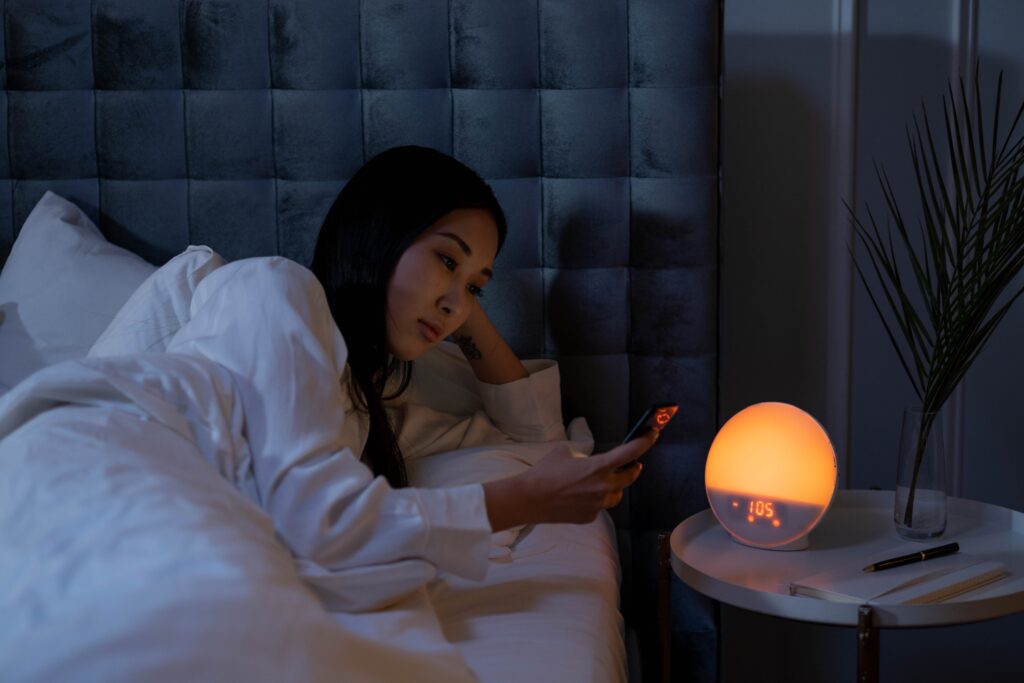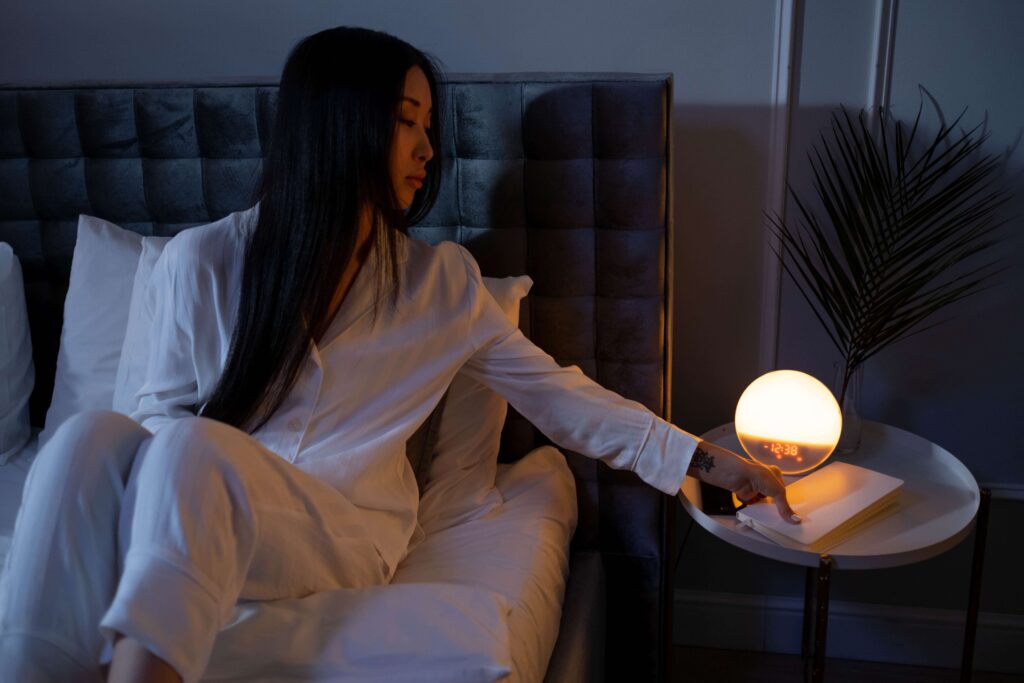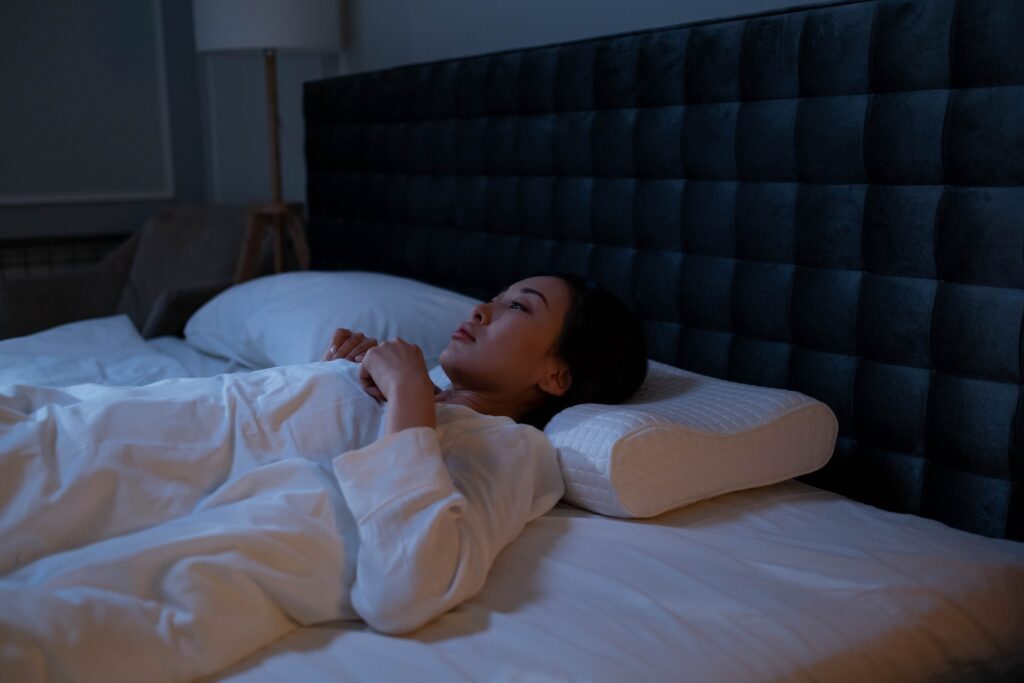There’s nothing quite like a good night’s sleep. Not only does getting sufficient sleep on a regular basis help lower stress levels and health risks, but it has also been found to improve concentration, focus, and clarity of thought. Unfortunately, it can be elusive for many members of modern society, especially if they’re working remotely.
According to market research and data analytics firm YouGov, Singapore has one of the most sleep-deprived populations in the world. Quantity is just as much of a problem as quality; only one in four people report sleeping seven hours or more every night, and fewer than one-fifth of respondents sleep through the night.
Sleep deprivation leads to emotional outcomes such as irritability, an increased tendency to think negatively, and motivational deficits, among a laundry list of symptoms. But a low mood is just the tip of the iceberg. It has also been linked to physical conditions such as heart disease, high blood pressure, and obesity.
So if you have trouble snoozing at night, you may want to pay attention to this.
What makes a good night’s sleep?

Typically, adults between 26 and 64 years old need 7 to 9 hours of quality sleep every night. According to the National Sleep Foundation, that means:
- You fall asleep within 30 minutes of going to bed
- You don’t wake up more than once a night
- You spend at least 85% of that time asleep
Of course, sleep disorders affect both the quantity and quality of sleep. For example, people with insomnia have difficulty falling or staying asleep at least three nights a week for three months or more. Sleep disorders are best treated by medical professionals, but good sleep hygiene is something everyone can practise.
“They are small things to change, and they can sometimes seem a bit too easy, but sleep hygiene education is an essential part of cognitive-behavioural therapy for sleep disorders,” said Intellect’s clinical psychologist Linda Rinn during the Sleep Matters, From Science to Application webinar.
Consistent application of sleep hygiene is necessary for improvement to be seen, and different methods work for different people. Below is a list of options recommended by Linda.
How to maintain optimal sleep hygiene
1. Optimise your bedroom
Good sleep starts with a conducive sleeping environment. A bedroom that is noisy, cluttered, and filled with reminders of work can contribute to poor sleep quality. Try to keep it neat and tidy, reserving the space solely for rest.
Studies have shown that a temperature of 18 or 19 degrees Celsius is ideal for falling asleep. In addition to temperature, brightness and noise levels also matter. Some people use blackout curtains, eyeshades, and earplugs, especially if they’re sharing a room. Others play white noise in the background, or one of the following alternatives:
| Color | What it sounds like | Suitable for |
| White | Static noise on an unused TV channel | People with insomnia or ADHD |
| Pink | Rain or gentle ocean waves | Light sleepers |
| Brown | Stormy ocean surf or low humming brass rumble | Restless sleepers or noisy environments |
| Blue | Hiss of a kinked water hose | People who aren’t sensitive to high-pitch sounds |
Whenever possible, turn off all screens and LED displays at least an hour before bedtime. The blue light emitted by screens can throw off your body’s internal clock, leaving it guessing whether it’s day or night. Don’t forget to activate “Do Not Disturb” mode on your phone too to avoid being disturbed by pesky notifications during deep sleep.
2. Establish psychological boundaries
We hate to break it to you, but sleeping in on your day off isn’t the treat it appears to be. Maintaining consistent sleep and wake times throughout the week, including weekends, is the foundation of good sleep hygiene. Set an alarm for the morning and wake up at the same time every day, even if you had a restless night with frequent awakenings.
Having a sleep schedule also helps you avoid bedtime procrastination. Some people delay going to bed because they feel dissatisfied with how their day went or because nighttime is the only “me time” they have. However, putting off sleep only perpetuates a vicious cycle; you’ll end up trying to compensate for the lost sleep the following day.

3. Nap strategically
Linda also shared that naps can significantly improve your mental performance and physical health. According to research, a short nap is much more beneficial than simply relaxing while awake.
However, napping can do more harm than good when done too late or for too long. The ideal duration is no longer than 20 minutes, and the best time to nap is around seven to eight hours after waking up and before going to bed.
| Wake up | Best time to nap | Bedtime |
| 5am | 12-1pm | 8-9pm |
| 7am | 2-3pm | 10-11pm |
| 9am | 4-5pm | 11pm-12am |
If you need an extra boost, try a coffee nap. Since it takes about 15 to 20 minutes for coffee to take effect, drinking a cup of joe just before taking a nap can help you feel more alert and awake when you wake up.
4. Exercise at the right timings
Sleep and wakefulness are influenced by different neurotransmitters in the brain, which are in turn affected by our diet and physical activity. That’s why it’s advisable to avoid stimulants like coffee and cigarettes close to bedtime.
Similarly, exercise can improve sleep quality when done correctly. It’s best to engage in regular exercise and get some sunlight in the morning while avoiding evening workouts. If you can only fit in a workout session after work, replace high-intensity exercises with low- or moderate-intensity ones and wrap it up at least two hours before bedtime.
5. Design a bedtime routine

A wind-down routine is also a powerful tool for improving sleep quality. Think of it as a nightly ritual to be done 30 to 60 minutes before bed—a series of activities that signal to your brain that it’s time to sleep. It works best with repetition and consistency and starts to yield results after a few consecutive days of practice.
Here are some ideas to incorporate into your bedtime routine:
Progressive Muscle Relaxation: This technique helps you differentiate between tension and relaxation by focusing on the sensations in your muscles. You can start by following an audio guide and eventually do it on your own once you become familiar with the steps.
Visualisation: This technique involves imagining different parts of your body as you try to fall asleep. You can start by visualising your toes and gradually move up through the rest of your body.
Counting sheep: A timeless method to distract yourself from rumination and shift your focus to something that requires minimal mental processing.
Keeping a sleep journal: Before going to bed, you can write down any thoughts or concerns that are keeping you awake. This can help take them off your mind. You can also keep a sleep log to identify patterns, what has worked for you, and what hasn’t.
Practising breathing exercises: This is another tried and tested method to induce sleep. For instance, box breathing involves inhaling, holding your breath, exhaling, and keeping your lungs empty for four counts each.
You could also try balloon breathing, where you imagine your breath as an inflatable object expanding and contracting with your lungs, or colour breathing by picturing a colour that represents how you want to feel or what you want to let go of.
6. Get out of bed temporarily when you can’t sleep

Even when you implement all these sleep hygiene tips, there will still be nights when you have difficulty falling asleep. It’s natural to feel helpless, but it’s in your best interest to stay calm and avoid panicking.
Rather than tossing and turning for hours on end, leave your bedroom if you can’t fall asleep after 20 minutes. The reason? You don’t want your mind to associate your bed with frustration, just as you wouldn’t want to reply to emails in bed and disrupt its role as a place of rest.
You may find yourself focusing on the time you’re losing, but that often leads to anxiety. Instead, get out of bed and engage in something relaxing in low light. The key is resisting the temptation to turn the electronics back on.
Hack your sleep with Intellect
Remember, just because these methods don’t work for you doesn’t mean all hope is lost. Our minds and bodies are unique, and the key to a good night’s rest may look different for everyone.
Of course, there’s always the option of using the Intellect self-care app for breathing exercises, mindfulness activities, and journaling. The app offers Rescue Sessions to help you fall asleep and a Learning Path dedicated to sleep hygiene. In addition, our panel of ICF-accredited coaches, licensed counsellors, and clinical psychologists can support you through what’s keeping you up at night.
Learn more about how Intellect can benefit you and your organisation.








